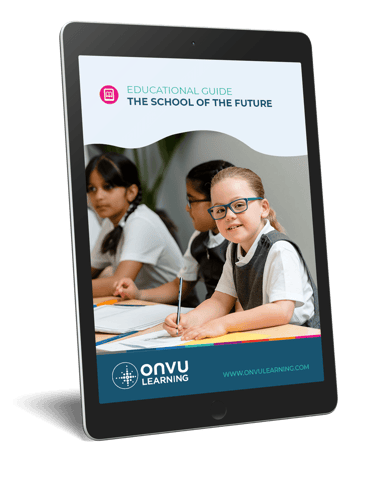- Blogs
- 3 Minute Read



This article is the fourth in the series. What should happen after a lesson observation as a follow-up to ensure that it leads to real, meaningful improvement?
Over the last few months, we’ve been sharing our research, experience and thoughts on how best practice in lesson observation can drive a school forward, change the culture and improve teaching and learning.
Our articles will cover the following topics…
What to do before an observationTo receive the whole series, make sure you sign up for our newsletter here – and follow us on social media.
——
1. Make sure the post-observation meeting happens at the arranged time and lasts for the arranged length!
It can be so easy to let the ‘busyness’ of teaching take over and for feedback to be limited to a passing conversation – something that the use (or misuse) of grades for lessons encouraged. Improving the performance of teachers should be at the top of any school’s list and teachers should be kept from cover or other duties and given the time and space to do this properly.
2. Be positive
Unless you’re in a situation where there are serious concerns about the teacher’s ability, the reason for the observation is to help them become a better teacher. Added to this and made more important by the current teacher recruitment and retention crisis, we’ve seen how positive feedback is a great way to re-engage and enthuse teachers!
3. Don’t grade lessons, even in passing
Ofsted don’t grade lessons and research from the Gates Foundation shows that they are highly inaccurate (1), but there’s still a tendency for teachers to ask for a grade or ask equivalent questions such as ‘was I good?’. Grades just make people think about grades. Instead, make the discussion about the actual lesson and the future development of the teacher – all teachers do many things well, but all can improve!
4. Let the observee talk first
It’s easy for the observer to bring out a bit list of ‘things I would do differently’ and run through them. ONVU Learning’s experienced teacher coach Dr. Sean Warren advocates first inviting the teacher to fill in any gaps that the observer might have missed, such as clarifying the lesson intentions. After a process of joint analysis they can be encouraged to consider what they would have kept the same (if they were to teach an identical lesson), before eventually moving on to areas that, in light of their professional learning, they would now do differently.
5. Use actual events to illuminate issues
It can be very easy to generalise feedback – ‘the class weren’t engaged’, or ‘they didn’t understand the idea’ – in ways that can make the observee defensive. It’s much better to talk about an individual situation, for example, ‘Tom didn’t seem to understand the idea of fractions when you first introduced it and wasn’t able to solve the problem’. If you can use evidence from video recordings, it’s so much better!
6. Make a short and achievable action plan
When Lucy Kellaway of Teach Now reported on her time as a trainee teacher, she was given a list of 18 targets after one observed lesson (2). Even at the start of a career, and definitely, later on, there’s a real need to focus on development – how can you work on 18 things at the same time? Choose two or three areas that can be worked on in a realistic time scale and set achievable goals – for example, to ensure that in the next lesson, you check your understanding of a new idea before asking students to apply it.
7. Arrange to observe again (and again)
Hopefully, this new way of doing observations will start to change the cultural approach to observations in your school. So, it’s not now about an imposition or something that needs to be controlled or limited to 3 per year. And staff will want to be observed, to get feedback that will make a difference in their practice. Schools we’ve worked with at ONVU Learning report that staff are moving to a culture where they want to share their lessons with someone – either to celebrate improvement over time or to ask for help.
Our next article will look at how schools can benefit from ongoing and reflective observation programmes once they’ve started and how they ensure they succeed.
We hope these tips can help you prepare for a lesson observation and achieve the most positive experience from it, as we understand that traditional observation methods can be nerve wrecking for even the most seasoned of teachers. If you are tired of such traditional methods then explore what ONVU Learning has been working on – an innovative and forward-thinking way to help teachers self-reflect on their lessons and improve their practice.
Did you like this post? Make sure you sign up to our newsletter so you can be on top of the latest conversations around teacher training and development by ONVU Learning. Until then!
(1) https://www.huffingtonpost.co.uk/entry/gates-foundation-met-report-teacher-_n_2433348
(2) https://www.ft.com/content/dcd2e834-b32d-11e7-a398-73d59db9e399

The School of the Future Guide is aimed at helping school leaders and teachers make informed choices when designing the learning environments of the future using existing and upcoming technologies, as they seek to prepare children for the rest of the 21st century – the result is a more efficient and competitive school.
KEEP IN TOUCH WITH ONVU LEARNING AND RECEIVE THE LATEST NEWS ON EDTECH, LESSON OBSERVATION, AND TEACHER TRAINING AND DEVELOPMENT.